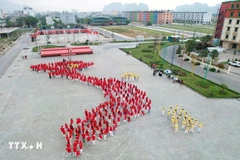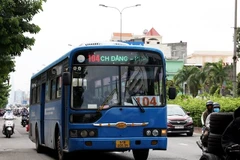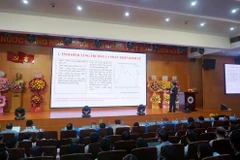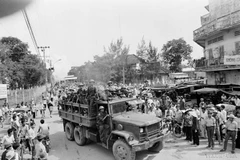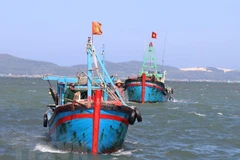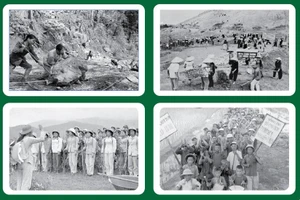More than 70 automatic gauges and weather stations had been installed,Hydro Meteorological and Environment centre director Nguyen Dinh Luongsaid on May 18.
They were measuring rainfall, river water and sea levels, wind, humidity and barometric pressure, he said.
The data was being transmitted in real time to provincial centres,collated in Da Nang centre and sent on to the national centre in Hanoi,he said.
The system in the provinces of Quang Binh,Quang Tri, Thua Thien-Hue, Quang Nam and Quang Ngai had taken threeyears to develop.
It was funded with 3.67 billionUSD in official development assistance from the Italian Government and15 billion VND (715,000 USD) from the Vietnamese Government. Italiancompany CAE was the project contractor.
National Hydro Meteorological Service director Bui Van Duc told Vietnam News that the new system was fast and accurate.
It takes only 3-6 hours for floods to hit downstream in the central part of Vietnam due to its narrow shape.
Now it would take 30 minutes to get a flood warning from the time rainstarted to fall upstream, compared to two hours previously, Duc said.
"Measurements used to be taken manually and put intoreports to be sent out via telephone or radio links, which made thewhole process time-consuming."
It was especially difficult during extreme events like typhoons.
Automatic measuring also meant better accuracy. Manual measuring ofwater level might have an error of 1cm whereas the automatic system wasprecise to a millimetre, he said.
However, DeputyMinister of Natural Resources and Environment Nguyen Van Duc said thedensity of gauging stations in the new system still remained lowcompared to other advanced countries.
The warning process would be expanded to the rest of central Vietnam early next year.
"Investment in flood forecasting and warning means investment insustainable development and poverty reduction here," the deputy ministersaid.
Floods in the central region last Octoberalone killed almost 200 people, left 35 missing with another 200injured. They caused property losses estimated at 13.5 trillion VND (642million USD) to the already poorest areas of the country.
Vietnam aimed to have a developed agriculture sector, whichdepended much on disaster and flood warnings, the deputy minister said.
Meanwhile, a strategy has been approved to develop anation-wide modern hydro meteorological network by 2020 to make thewhole country prepared for floods and disasters.
However, meteorological director Duc said progress was slow due to the credit crunch./.







